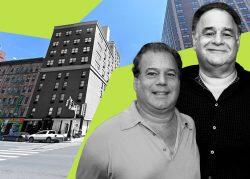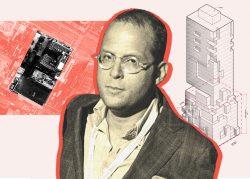After years of acrimony and legal wrangling, the Haruvi family has sold off a major piece of its Manhattan apartment empire.
Landlord Peter Hungerford’s PH Realty Capital paid $139 million in May for about half of the family’s portfolio, records show. The dozen properties, which combine for more than 200 units, are concentrated mostly on the Upper West Side, plus two buildings on First Avenue in Midtown East.
PH Capital secured a $160 million loan from Rialto Capital to acquire and refinance the buildings, in addition to nearly $23 million for repairs. One of the buildings, at 54 West 75th Street, was damaged by fire in 2020 and is the only unoccupied property included in the deal, according to Hungerford.
“We are mainly installing new toilets and other things to clear building violations,” he said.
The sale follows years of turbulence for the Haruvi family, including lawsuits between brothers Abe and Arthur Haruvi and Abe’s possible divorce from his wife, Giovana Stephenson. Abe Haruvi was reportedly acquitted of a misdemeanor battery charge last week stemming from his December arrest for an alleged domestic violence incident at the couple’s South Florida estate.
Abe owned 50 percent of the companies, Jacreg Realty and Simry Realty, that sold the properties to PH Realty in May, according to court documents, while other family members including Arthur owned the other half.
The entire Haruvi portfolio of about 500 apartments is valued at $264 million, according to Hungerman, but the deadlocked nature of ownership inspired legal jousting over financial problems at the properties since the onset of the pandemic.
Read more


As occupancy rates fell substantially across the portfolio, the brothers were at odds over how to refinance the properties, court filings show, with Arthur accusing Abe of skimming profits from the ownership entities.
Abe, who declined to comment for this story, has kept a relatively low profile since he and Stephenson were sued by their maid for alleged mistreatment more than a decade ago. Years before that, Abe courted controversy for his attempts to eject rent-regulated tenants from his Manhattan buildings, and was met with protests in 2012 for using similar tactics at an East Village apartment complex.
